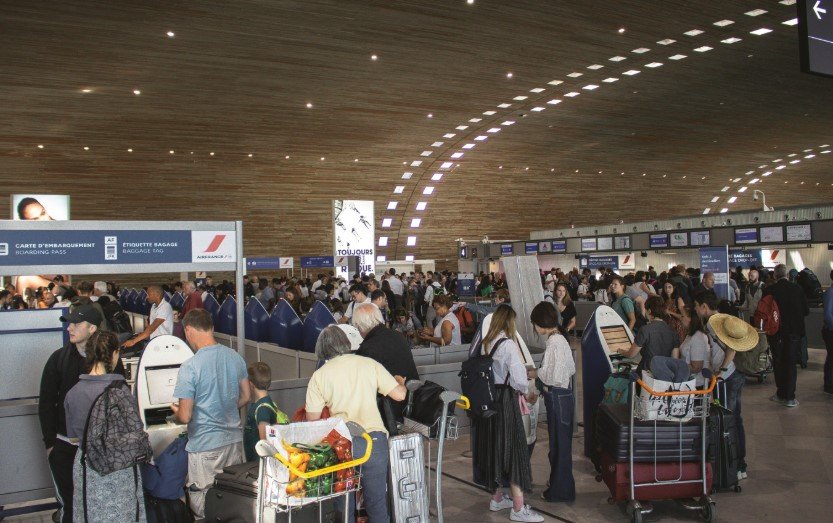Business travelers from Europe are steering clear of the United States — and it’s not just about airfare or inflation.
New data shows a sharp slump in corporate travel bookings from key European economies to the U.S. following the re-election of Donald Trump. And with aggressive tariff policies and rising unease at U.S. borders, it’s beginning to look like more than a temporary dip.
A 26% Wake-Up Call for Transatlantic Business
April wasn’t kind to U.S.-bound business travel. According to figures from London-based HotelHub, which specializes in global corporate travel data, bookings from Europe dropped by a staggering 26% compared to April 2024.
This isn’t just a fluke or some seasonal shuffle. The numbers reflect mounting anxiety in boardrooms across Europe over what doing business in America now means.
HotelHub’s Chief Commercial Officer, Paul Raymond, put it plainly: “There’s been a lot of uncertainty around the traditional partnership with the U.S. since the new administration took office — and even more so since the tariff announcements.”
He’s referring to Trump’s sweeping new import duties, which many businesses view as unpredictable and destabilizing. And in the corporate world, unpredictability is the fastest way to lose travelers — and deals.

Country by Country: Who’s Pulling Back, and How Fast
The drop-off isn’t evenly spread. Some countries are retreating from U.S. travel faster than others — and the data paints a stark picture.
Germany, often considered the economic engine of Europe, slashed U.S. travel bookings by a massive 30.4%. France wasn’t far behind, posting a 22.4% decline, while the U.K. — America’s traditional political partner — saw a 14.4% drop.
These numbers aren’t just academic. They reflect hundreds of canceled trips, postponed meetings and abandoned deal-making opportunities.
Here’s a quick snapshot of how major economies fared in April:
| Country | Drop in U.S. Business Travel (April 2025 vs. April 2024) |
|---|---|
| Germany | 30.4% |
| France | 22.4% |
| United Kingdom | 14.4% |
| Canada | Significant drop (exact number not disclosed) |
| Mexico | Significant drop (exact number not disclosed) |
The downward trend isn’t isolated to Europe, either. Canadian and Mexican businesses, traditionally more entwined with U.S. operations, are also scaling back, alarmed by new tariffs and stricter entry procedures.
What’s Driving the Fear?
At the heart of it: Trump’s trade war redux and heightened entry friction.
It’s no secret Trump thrives on confrontation — politically, economically, and diplomatically. His administration’s recent barrage of tariffs against both allies and rivals has spooked companies that once saw the U.S. as a stable, predictable partner.
But it’s not just about policy. Social media has been flooded with stories of travelers from Europe and Canada facing hostile treatment at U.S. ports of entry. Detentions, excessive questioning, and even denial of entry — even for well-documented professionals — are becoming less rare.
• Business travelers are increasingly concerned they’ll face humiliation or delays at the border
• Some companies are now issuing “travel caution advisories” to their executives
• Travel insurance costs have gone up in response to unpredictable customs treatment
“Executives don’t want to risk a humiliating experience at JFK or LAX,” said a Brussels-based travel coordinator for a major consulting firm. “It’s just not worth it for a two-day trip anymore.”
U.S. Reputation Hits Corporate Wallets
Even beyond travel, the broader narrative of “America First 2.0” is taking a toll. Trump’s rhetoric — coupled with aggressive foreign policy moves and withdrawal from multilateral agreements — is forcing some European companies to reconsider their U.S. market strategy.
For multinational firms weighing where to invest, the U.S. feels less like a partner and more like a powder keg.
Short paragraph here again.
“This is affecting not just travel but supply chains, investment decisions, and long-term partnerships,” said Anne-Lise Rousseau, a Paris-based market analyst. “It’s not just fewer flights — it’s fewer factories, fewer launches, fewer collaborations.”
Turning Westward — But Not to America
Interestingly, while transatlantic business travel takes a nosedive, other global hubs are seeing more action.
Asia-Pacific destinations, particularly Singapore and Tokyo, have quietly started gaining traction. Their appeal? Relative political stability, friendlier visa regimes, and a sense of long-term opportunity.
Some firms are already making shifts:
-
German auto suppliers are increasing travel to South Korea and Japan
-
French agritech companies are prioritizing South America over U.S. distribution
-
U.K.-based fintech players are exploring more deals in the UAE and India
It’s not a complete pivot — but it’s definitely a realignment. For now, the U.S. is starting to feel less like the center of gravity and more like a volatile outpost.
Is This the New Normal?
That’s the question haunting corporate planners. Will travel rebound once the shock wears off, or is this the start of a long-term chill in U.S.-EU business relations?
If the numbers keep sliding, we may be witnessing a slow-motion decoupling. The economic ties that bound Europe and the U.S. for decades might be fraying — one missed flight and one canceled meeting at a time.
And unless things change — on the border, in policy, and in tone — fewer Europeans may be coming to America. Not because they can’t, but because they’d rather not.








